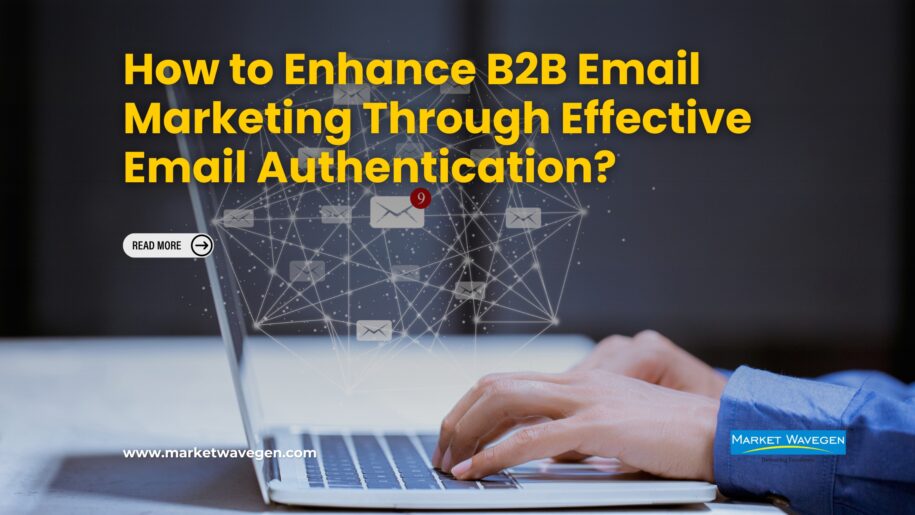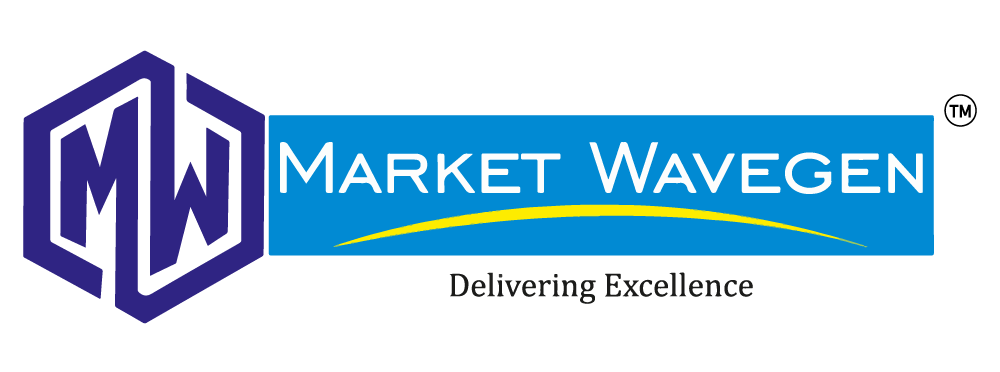In the realm of B2B marketing, email continues to be a cornerstone of communication and outreach strategies. However, the effectiveness of these campaigns hinges significantly on the trust and security perceived in these interactions. Effective email authentication is not just a technical necessity; it’s a strategic asset that can significantly enhance the impact of your B2B email marketing efforts. This blog explores how businesses can leverage email authentication to improve deliverability, build trust, and ultimately drive greater engagement and conversions.
Understanding Email Authentication
Email authentication helps verify that an email claiming to come from a specific domain is authorized by the domain owner. This is crucial because it prevents spammers from using your domain to send unauthorized emails, commonly known as email spoofing. The three main standards used in email authentication are SPF (Sender Policy Framework), DKIM (DomainKeys Identified Mail), and DMARC (Domain-based Message Authentication, Reporting & Conformance).
- SPF (Sender Policy Framework): SPF allows senders to define which IP addresses are allowed to send mail for a particular domain. This is done by adding an SPF record to the DNS settings of your domain.
- DKIM (DomainKeys Identified Mail): DKIM provides a way to validate a domain identity that is associated with a message through cryptographic authentication. Implementing DKIM involves adding a digital signature to the headers of email messages. This signature can be verified by recipients against a public cryptographic key in the domain’s DNS records.
- DMARC (Domain-based Message Authentication, Reporting & Conformance): DMARC unifies SPF and DKIM authentication mechanisms with a consistent set of policies. It also adds a reporting function that allows senders and receivers to improve and monitor protection of the domain from fraudulent email.
Benefits of Email Authentication in B2B Marketing
Enhanced Deliverability
One of the most direct benefits of robust email authentication is improved email deliverability. Email servers use SPF, DKIM, and DMARC to verify that the emails being sent are legitimate and not spam. This means that properly authenticated emails are less likely to be rejected or marked as spam by email servers, ensuring that your content reaches the inbox of your intended recipients.
Building Trust and Reputation
Email authentication not only protects your domain from being used for email spoofing but also builds your reputation as a trustworthy sender. When your emails are consistently authenticated, email service providers recognize your domain as legitimate and safe, which can improve your sender reputation. Higher reputation scores are directly correlated with higher inbox placement rates.
Preventing Phishing and Protecting Your Brand
Phishing attacks can damage your brand’s reputation and erode trust with your customers. By implementing email authentication, you can protect your customers from potential phishing attacks purported to be from your domain. This is crucial in maintaining the integrity of your communications and the safety of your customers’ information.
Implementing Email Authentication: Steps for B2B Marketers
Step 1: Set Up SPF Records
Start by setting up an SPF record in your DNS. This tells email servers which IP addresses are authorized to send emails on behalf of your domain.
Step 2: Configure DKIM
Next, configure DKIM by generating a public/private key pair and adding the DKIM signature to your emails. Publish the public key in your DNS records.
Step 3: Implement DMARC
Finally, implement DMARC by publishing a DMARC policy in your DNS records. Start with a none policy to monitor how your emails are being handled and gradually move to more restrictive policies as needed.
Step 4: Monitor and Adjust
Regular monitoring of SPF, DKIM, and DMARC reports is essential. These reports will help you identify and rectify any issues with your email delivery. Adjust your policies and configurations based on these insights to optimize the security and effectiveness of your email marketing campaigns.
Conclusion
Effective email authentication is pivotal in enhancing B2B email marketing strategies. By implementing SPF, DKIM, and DMARC, marketers can improve email deliverability, build trust with their audience, protect their brand from phishing attacks, and ultimately drive better marketing results. Start integrating these practices into your email marketing strategy today to secure your digital communications and enhance your B2B marketing efforts.


Leave a Reply